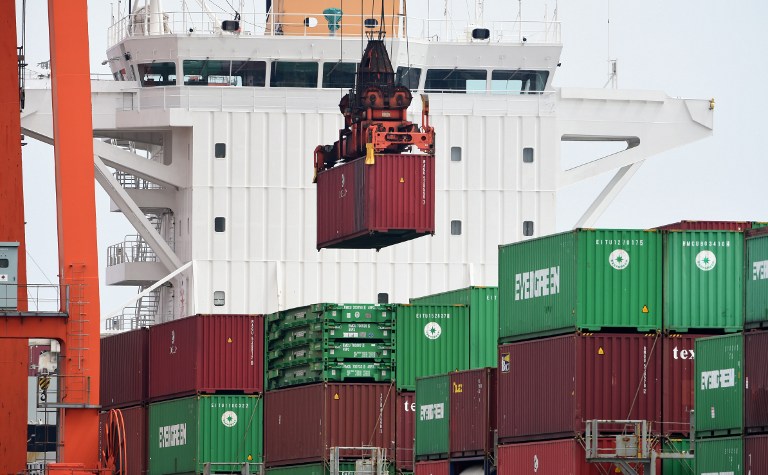
This file photo taken June 20, 2016, shows a container being unloaded from an international freighter at a port in Tokyo. The value of Japan’s exports fell again while imports shrank resulting in a bigger-than-expected trade surplus in September, official data shows. AFP
TOKYO, Japan — Japan swung to a bigger-than-expected trade surplus in September, as tumbling imports offset lackluster shipments overseas, official data showed Monday.
The value of Japan’s exports fell again, with vehicles and steel among the worst hit sectors, as a stronger yen clouds the country’s trade picture.
But imports shrank more than 16 percent in value, with crude oil and liquefied natural gas down significantly due to lower commodity prices, according to the finance ministry.
That left a trade surplus of 498.3 billion yen ($4.8 billion), bigger than the market forecast of 372.9 billion yen.
It also reversed a surprise trade deficit in August.
Analysts pointed out that the volume of Japan’s exports actually grew last month.
“The strong rise in export volumes underlines that Japan’s manufacturing is showing resilience as external demand remains weak,” said Marcel Thieliant at research house Capital Economics.
But he added that Japan’s trade surplus will likely narrow in coming months.
“The price of crude oil has rebounded in recent months, and we expect Brent prices to climb to $60 by the end of next year… the yen has weakened against the dollar and we expect it to depreciate further, which should lift import prices.”
Tokyo has been struggling to kick start spending and lift prices in a bid to conquer the deflation that has weighed on the economy for years.
The economy grew just 0.2 percent growth in April-June.
Tokyo in July announced a whopping 28-trillion-yen package aimed at kick starting growth, after Britain’s June vote to quit the European Union sent financial markets into a tailspin and sparked a yen rally. The surge in the currency has taken a bite out of profits at Japanese firms that do business overseas. CBB